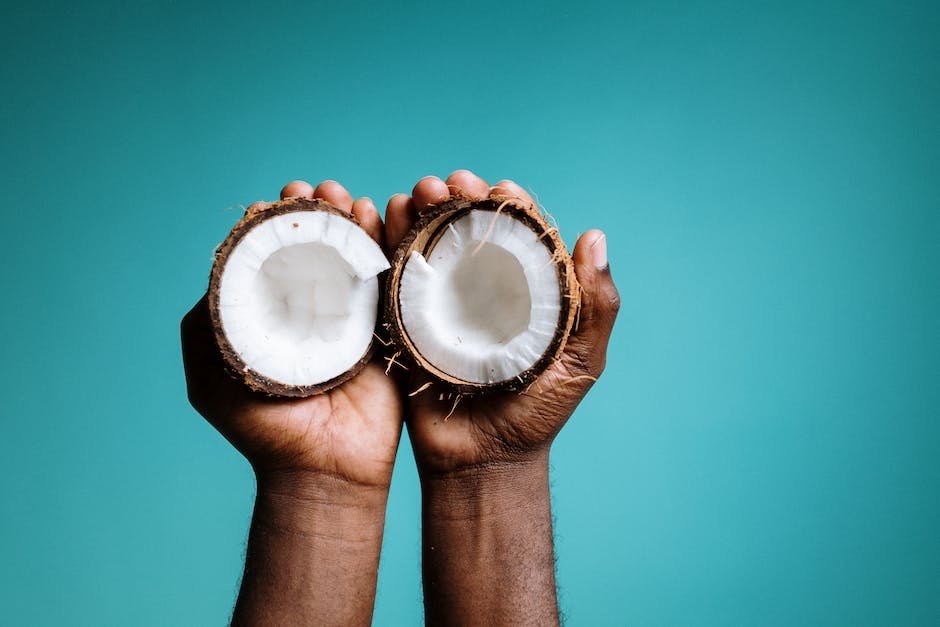Many people have become very passionate about coconut oil lately, with some even touting it as a miracle beauty tool that can do almost anything! While there has been an increase in popularity for using virgin coconut oil (VCO) to improve your skin, some are now talking about adding in extra lightening agents into your routine.
Some say that you can mix a few drops of VCO into your daily beauty regime to see lighter, healthier looking skin. Unfortunately, this theory is not supported by most experts.
As many professionals will tell you, while sun exposure can result in darker skin, genetics play a big role in how dark or fair your skin becomes. This includes things like your DNA composition, hormone levels, and stress factors such as smoking or drinking too much alcohol.
Effects of saturated fat

Many people believe that oils with a higher saturation level (or more “solid”) are better for your skin than ones with lower levels. This is not true, however! The reason some fats are thought to improve dry or even hurtous skin is because they contain large amounts of moisture.
When we use oils as skincare products, you will always have a small amount of oil along with water and other additives. As these two liquids separate, there may be excess oil or water left over depending on how much product was used- this is why it is important to check the consistency of the product before using it!
If there is too much liquid, then the product may actually do more harm than good! Too much oil can cause our skin to become overly wet, leading to clogging of the pores and potential infection. Water also works similarly in helping our skins natural defenses stick to foreign particles such as bacteria, chemicals, and dirt. If the skin is constantly dried out, it won’t function properly.
There is just one major problem with this theory: coconut oil does not contain any moisture! It is completely solid at room temperature. Because it does not absorb light like water or alcohol, the color does not change when it mixes with others, making it difficult to determine if it has been consumed.
Effects of unsaturated fat
Many people are aware that oils like olive oil, coconut oil, and macadamia nut butter help prevent skin dryness by acting as an internal moisturizer. However to say they lighten your skin is not true!
Oil can make your skin feel greasy or even sticky and this may be the cause of perceived lighter skin. This article will talk about the effects of saturated and polyunsaturated fats on our skin and whether or not coconut oil contributes to darker skin.
Skeletal muscle tissue requires large amounts of lipids (oils) for proper function. As we age, we produce less collagen which helps keep our muscles strong and elastic.
Lipid molecules interact with proteins in the skeletal muscle cells to aid in cell growth and division. There are several types of lipids found in muscles including triacylglycerols (triglycerides), cholesterol esters, phospholipids, and glycolipids.
Triacylglycerols contain three fatty acid chains and are the most common form of lipid stored in human body tissues. They are also the main component of most vegetable and animal oils.
Cholesterol is another major component of some blood vessels and has many functions within the body. It aids in protecting us from infections and helping neurons develop into functioning circuits.
Phospholipids have a polar head group attached to a non-polar “fat” portion.
Uses of coconut oil

Many people have heard about all of the incredible things that can be done with virgin, extra-virgin olive oil, but they may not know how well coconut oil works to improve your skin!
Many people use coconut oil for its healthy fats. It can also be used directly onto your skin or in recipes as an ingredient.
Some say that it helps reduce dry skin and promote healthier hair growth. Others believe it aids in moisturizing the skin better than other oils.
It is important to do a small patch test first to see if your skin tolerates it before trying it out at full strength.
Helpful tips for using coconut oil
Many people praise coconut oil as a skin-loving fat that aids in improving dry or oily skin. It can also be used to treat sunburns!
However, before rubbing all of your favorite recipes into your skin, you should know some helpful information about coconut oil.
First, you want to make sure it is clear/colorless. Some brands add dye to increase price.
Second, you want to be certain that the product does not contain allergens such as sesame seeds, soybeans, or wheat.
Third, you do not want to use coconut oil if you are allergic to nuts. Similarly, individuals who are sensitive to milk products or egg whites may not be able to use coconut oil either.
Fourth, remember that although oils like olive oil and avocado oil are good additions to your diet, hot oils can actually hurt your skin. Melted coconut oil can go wrong way when applied onto your skin.
Coconut oil and your skin
Many people praise coconut oil as a lightening agent for your skin, but there are also several theories about it causing darker skin to become lighter or even changing how dark your skin is already.
Some say that it acts like sunblock by protecting your skin from the effects of harsh sunlight. Others believe it can interact with other skincare products at the sale time, leaving you with either no effect or an unexpected white cast.
There have been reports of some users who feel their skin got slightly lighter after using coconut oil, but they cannot determine whether this change was due to the product or something else. It may be hard to tell if this action is positive or negative unless and until you try the product yourself!
Experts agree that only small amounts of virgin coconut oil should be used when trying to improve your overall health and wellness.
Coconut oil and your hair
Many people have become very familiar with coconut oils since they seem to keep their skin soft and moisturized. Some even use it as a lip product to give their lips more moisture!
Many of these individuals also love how richly brown some parts of their body are due to the presence of coconut oil.
Thicker hairs that grow thicker is one of the ways most people know about coconut oil. Almost every beauty brand has at least one item containing coconut oil because it is thought to improve the health and growth of our hair.
Coconut oil and your teeth
Many people praise coconut oil for its lightening effects on sun-exposed skin, but few realize what it can do to your oral health. Luckily, information about this is just recently coming to light!
A small amount of virgin coconut oil (VCO) may help prevent tooth decay in children who experience frequent ear or throat infections. A 2016 study found that VCO reduced levels of bacteria linked with dental caries (cavities) in young kids with acute otitis media (AOM), an inflammation of the middle ear.
Acute otitis media is very common in infants and toddlers. When fluid accumulates in the middle ear due to infection, symptoms include pain, redness, swelling, and hearing loss.
In some cases, doctors perform a procedure called myringotomy to remove excess fluid from the middle ear. This usually works well, but not always! If the child’s condition doesn’t improve within two weeks, additional treatments may be needed.
Researchers wanted to see if VCO would reduce bacterial growth in the mouth after myringotomies. For their experiment, they collected 10 mL of saliva before and 30 minutes after myringotomy in 20 one year old patients. They then analyzed the samples for signs of oral microbial activity and acidity.
Coconut oil and your weight
Recent studies claim that not only does coconut oil help lighten dark skin, but it may also aid in keeping you thin or even help you gain weight. That’s right! Weight gain!
A small study conducted by researchers at Texas A&M University found that virgin olive oil (Olive oil is just plain ol’ oil with no additives) can be an effective way to boost weight gain in overweight individuals. The researchers concluded that drinking one tablespoon of olive oil daily was enough to achieve this goal for most people.
Drinking olive oil may stimulate appetite suppression and thus influence how much food you eat. If you are someone who enjoys eating junk foods, then perhaps drinking olive oil will help you control your intake.
However, they did note that although olive oil helped promote weight gain, it does not appear to be helpful in maintaining weight once weight has been achieved. It may instead have negative effects and contribute to obesity.
So while it is not advisable to drink olive oil if you’re trying to lose weight, it could be a good addition to your diet if you do not mind eating more food.


















